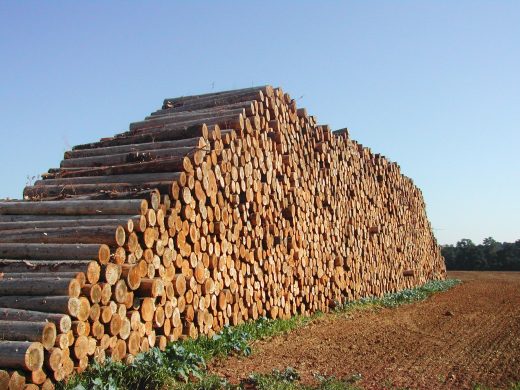Det tidligere berygtede firma Asia Pulp and Paper forpligtede sig i februar på at standse afskovning i sit virke, men nu konkluderer ny rapport, at en af virksomhedens leverandører igen har ryddet skov på Borneo.
Up to 1,400 hectares of forest have been cleared in a concession belonging to an Asia Pulp & Paper (APP) supplier in Borneo, potentially putting the company in breach of the forestry giant’s zero deforestation commitment, writes mongabay.com.
In a report released Tuesday, Relawan Pemantau Hutan Kalimantan (RPHK), a coalition of NGO’s in part supported by WWF-Indonesia, said that blocks of natural forest have been cleared in a concession belonging to PT Daya Tani Kalbar (DTK), an APP supplier. The clearing has taken place since APP’s moratorium went into effect February 1, 2013.
“RPHK analyzed historical satellite images and conducted a field investigation in November 2013,” states the report. “RPHK found that ‘pulpwood plantation areas’ A, B and C identified on APP’s ‘moratorium map’ still had blocks of natural forest remaining on the day before the moratorium deadline of 31 January 2013. These blocks had disappeared by November 2013.”
Assessment of natural vegetation required
APP’s forest conservation policy commits it to protecting high conservation value and high carbon stock lands, as well as mitigating conflict with local communities. The policy, which applies to all new plantation development and all of APP’s suppliers worldwide, requires assessments of natural vegetation prior to conversion. APP will only accept fiber from new plantations established on land that is classified as “old scrub” under Indonesia’s forestry classification system.
But the RPHK report alleges that no assessment was conducted in the areas cleared by DTK.
Overlapping licenses
In response to the allegations, APP says it is investigating the case.
“We, together with TFT, are currently assessing this latest report. We will publish our findings and response to RPHK as soon as this verification process is completed.” an APP spokesperson told mongabay.com.
It is not the first issue to arise in DTK’s concession. In March, RPHK documented forest clearing in the same area. A subsequent investigation by APP and The Forest Trust (TFT), an NGO that is implementing APP’s policy, confirmed forest clearance but found that the issue was an overlapping concession license to develop the area. A palm oil company unaffiliated with DTK or APP was chopping down trees and draining peatlands to establish a plantation.
Overlapping concession licenses are indeed a complicating factor in land management in Indonesia. Last summer’s haze provided several cases where public concession data didn’t match realities on the ground.
Market transformation
While the new allegations are bound to raise concerns among some environmental groups on APP’s commitment to conserving forests, they also illustrate the complexity of implementing the policy across a web of suppliers and hundreds of thousands of hectares of undeveloped concessions. For its part, APP has set up systems for handling complaints and resolving conflicts brought to light by NGO’s. Lately APP has been working with both TFT and Greenpeace, a traditional adversary that ran a damaging three-year campaign against the paper products giant, to address issues that arise.
Greenpeace’s engagement with APP and WWF’s emergence as a fierce critic represent an unusual role reversal for the groups, but both agree that market transformation is critical to addressing deforestation, which is increasingly driven by industrial actors, rather than subsistence farmers. Private sector leadership from forestry and plantation companies, which heavily shape Indonesian forest policy, is seen as key to shifting the country away from the business-as-usual approaches that have wrecked almost half the archipelago’s forests since 1950. Therefore recent commitments from APP, Indonesian palm oil grower Golden Agri-Resources, and palm oil trader and producer Wilmar are generally viewed positively as progress toward that end.
Read the entire story on Mongabay.com














